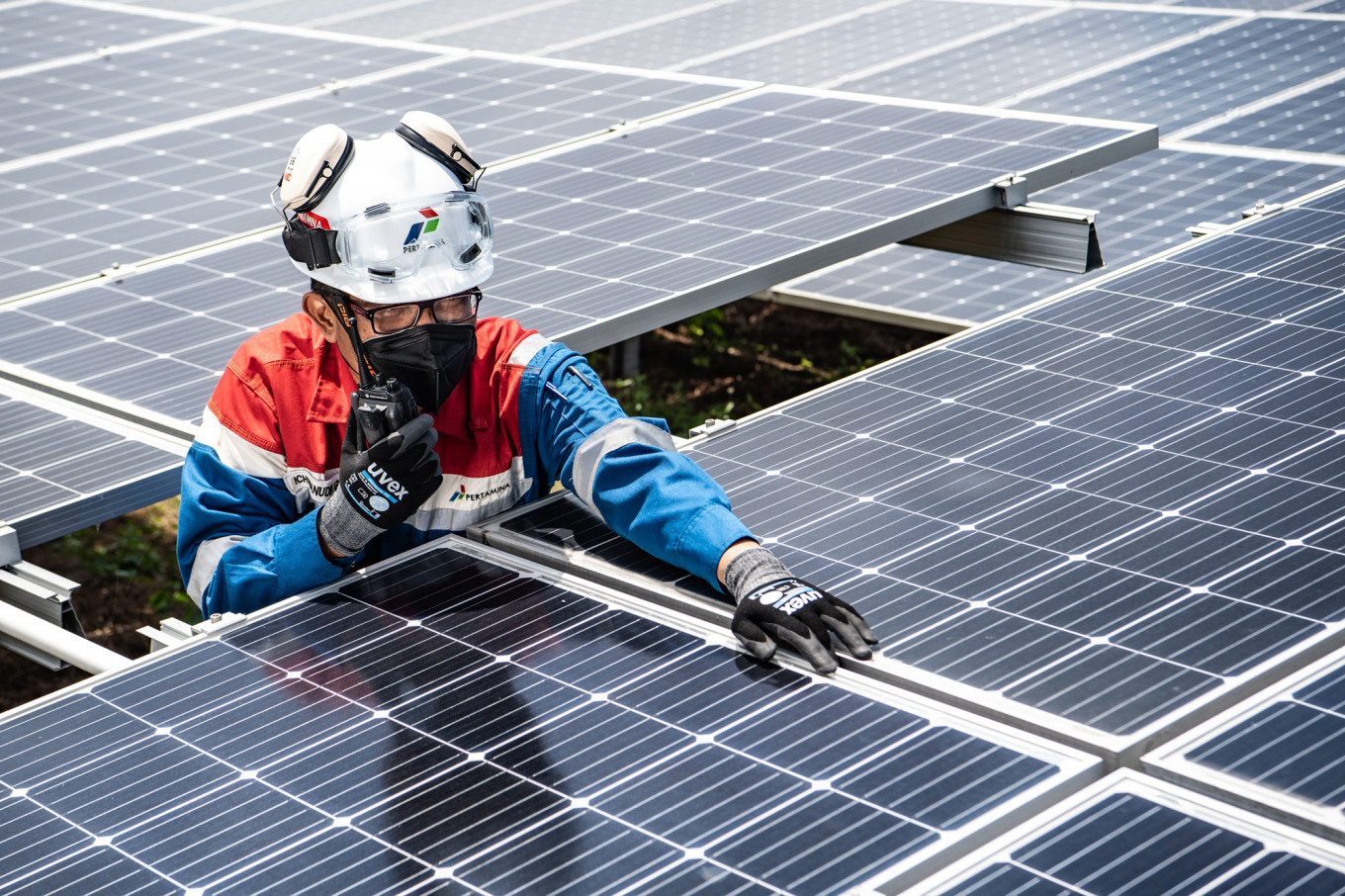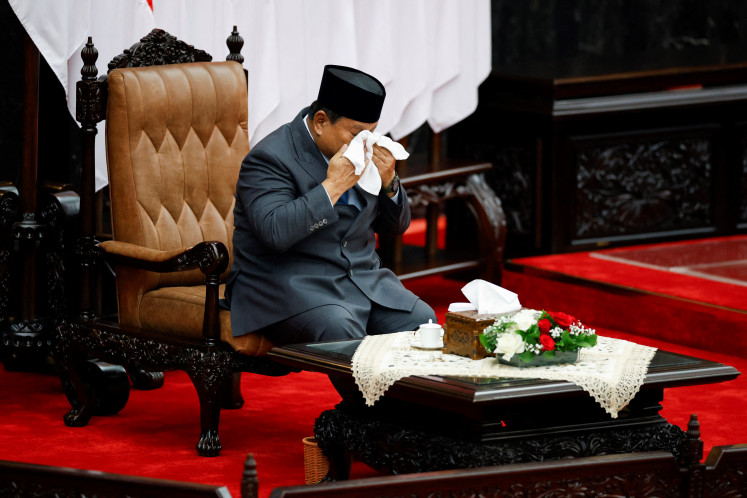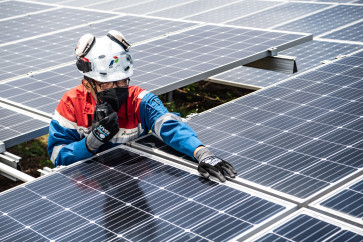Popular Reads
Top Results
Can't find what you're looking for?
View all search resultsPopular Reads
Top Results
Can't find what you're looking for?
View all search resultsThe importance of renewable energy in manufacturing
Transitioning the industrial sector to cleaner energy is more complex than the power plant sector.
Change text size
Gift Premium Articles
to Anyone
I
ndonesia's industrial sector is the second-largest energy consumer after transportation. The increasing emphasis on environmental standards by exporting countries and multinational companies has created an urgent need for the government to accelerate the energy transition in the manufacturing sector. Moreover, the European Union will implement a carbon border adjustment mechanism (CBAM) with its trade partners and this will impact on Indonesian exports if the government does not accelerate the transition to renewable energy within the manufacturing sector.
However, transitioning the industrial sector to cleaner energy sources is more complex than the power plant sector. While electricity from power plants constitutes only 23.1 percent of the total energy used in the industrial sector, 76.6 percent still comes directly from fossil fuels for heating and raw materials. Achieving low-emission technologies poses a more significant challenge, particularly for heavy industries that heavily rely on fossil energy, such as cement, smelters, iron and steel and the chemical industry. To achieve significant reductions in emissions by 2050, these industries will need to shift toward electricity, bioenergy and hydrogen as substitutes for fossil energy. This transformation will involve overhauling production processes and adopting new technologies and practices. Industries such as iron and steel, cement and pulp and paper, which are major consumers of coal outside the power sector, require supportive policies to facilitate this transition.
Constraints in the energy transition in the manufacturing industry encompass physical barriers, technology readiness and skills gaps. Inadequate infrastructure, such as the high emission factor in the power grid and limited natural gas transmission and waste management systems, presents significant challenges. Their higher costs hinder the adoption of proven energy-efficient solutions compared to conventional alternatives, and the absence of Minimum Energy Performance Standards (MEPS) and Conservation Labelling (CL) standards for industrial motors further compounds the issue.
Skill constraints arise from low education levels and limited collaboration between universities, industry, the government and end users. Additionally, there are other constraints related to current green commitments, regulations, institutional limitations and fiscal policies. Indonesia’s green commitments primarily focus on the power plant sector, leaving the manufacturing sector with limited emission reduction targets. Aligning energy conservation and green industry regulations with international agreements and national net-zero commitments, including regulating captive power used by industries, is crucial. The government's limited role in providing technical assistance, advocacy and incentives adds to institutional constraints, while unclear incentive mechanisms and illegal activities erode trust in regulatory processes.
To address the energy transition challenges in the manufacturing industry, Indonesia should establish a comprehensive framework and package of policies. A wide range of solutions are available and emerging, including renewable energy development, materials efficiency improvements, effective materials recirculation, new production processes and carbon capture and storage/utilization. Technological readiness plays a vital role in enabling this transition. However, these solutions require significant investments.
Learning from experiences in other countries, the proposed framework and policy package should consider the manufacturing sector's readiness level, available technologies and national energy transition targets. It should cover various aspects, including electrification and digitalization, energy efficiency and conservation, renewable energy development, technology advancement to replace fossil fuel consumption and carbon capture and utilization/storage (CCS/CCUS) implementation. Each aspect's implementation should be tailored to specific requirements and readiness levels.
Although some industries have pledged net-zero emissions, Indonesia needs a policy lever to decarbonize the key supply chain. Financial support policies play a critical role in advancing energy transition and promoting green industry initiatives within the manufacturing sector. This support can take various forms, including direct and indirect measures. Direct financial support encompasses grants, tax incentives, low-interest loans, performance-based incentives, carbon pricing and renewable energy certificates.



















